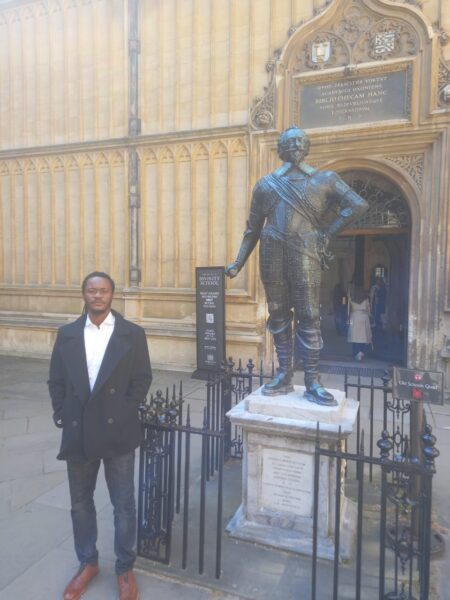Global Issues
The Negative Impact Of The Missionaries On African Societies -By Buno Ehimare
It created an imbalance of power that hindered the collective development and the well-being of African communities, as the untapped potential and contributions of women were overlooked and undervalued. Women, who have traditionally played vital roles as caregivers, educators, and community builders, were marginalized and denied the opportunity to fully contribute their knowledge, skills, and perspectives.

Africa’s historical relationship with colonialism was significantly influenced by the presence of the missionaries, who played a pivotal role in shaping the continent’s religious landscape. While acknowledging the perceived “positive” contributions of missionaries, it is essential to delve deeper into their underlying motives and the potential repercussions on African societies.
During the colonial era, missionaries arrived in Africa as representatives of their home countries, acting as agents of their states. Their proclaimed objectives were education and spiritual guidance, but their true intentions were meshed with colonialism and expanding their nations’ influence.
Missionaries strategically leveraged their positions to introduce and promote religious beliefs and practices aligned with their own doctrines. They established churches, schools, and religious institutions, assuming influential roles within African communities. By imparting their teachings, missionaries sought to mold the mindset and worldview of Africans according to their own cultural and religious norms.
The influence of missionaries in Africa had far-reaching effects. First of all, it perpetuated a sense of inferiority and self-doubt among Africans, as Western ideas and whiteness were consistently portrayed as superior and that of Africans inferior. This damaging perception fueled discrimination based on skin color as light-skinned individuals were often favored, while dark-skinned individuals faced some sort of prejudice and exclusion. Consequently, African culture, traditions, and achievements were undervalued, eroding self-esteem and distorting self-perception. This internalized belief of cultural inferiority further perpetuated divisions within African societies, pitting light-skinned and dark-skinned Africans against each other. It is disheartening to witness how this mindset persists to this very day, with many Africans feeling the need to alter their natural appearance through skin bleaching in an attempt to fit into the prescribed beauty standards rooted in colonial ideologies.
The missionary presence also hindered social cohesion and unity within African societies by fueling divisions among different ethnic groups and reinforcing ethnic hierarchies. This resulted in social fragmentation, intergroup conflicts, and limited collective action to address shared challenges, impeding the development of strong, inclusive communities and a unified African identity. Moreover, missionaries contributed to the marginalization and exclusion of African voices and perspectives across various domains, limiting opportunities for full participation and meaningful contributions to their own societies’ progress. This exclusion perpetuated a power imbalance that hindered the realization of Africa’s full potential.
Furthermore, the missionary influence posed threats to Africa’s cultural heritage, leading to the loss of traditional knowledge, practices, and languages. Traditional healing methods, spiritual rituals, and local customs were often condemned as pagan or backward, leading to the erosion of valuable cultural traditions. This not only undermined the self-esteem and identity of African communities but also disrupted the intergenerational transmission of knowledge, as younger generations were discouraged from embracing their own cultural heritage.
Economically, the missionary presence contributed to exploitation and inequality in Africa. Colonial legacies and economic systems perpetuated cycles of dependency and underdevelopment, as African countries were often relegated to suppliers of raw materials, while external powers reaped the benefits of value-added processing and profits.
We can not state all these without also mentioning how the missionary’s activities made possible the reinforcement of gender Inequality. The activities of missionaries not only imposed their religious beliefs but also reinforced gender inequality within African societies. As they disseminated their teachings, missionaries often interpreted religious scriptures in a way that placed women in subordinate roles, perpetuating patriarchal norms and practices. Women were expected to conform to rigid gender roles that limited their autonomy and opportunities for self-growth.
By promoting patriarchal interpretations of religious texts, bolstering gender inequalities, and suppressing the advancement of women, Women’s rights were ignored, and their voices were silenced in matters of decision-making, governance, and social affairs.
While some may argue that gender disparities already existed in African communities, we can also agree that the patriarchal interpretations of these religious texts by the missionaries further reinforced it.
This perpetuation of gender inequality not only affected women individually but also had broader societal implications. The exclusion of women from positions of influence and power limited the diversity of thought, hindered innovative solutions to societal challenges, and stifled social progress. It created an imbalance of power that hindered the collective development and the well-being of African communities, as the untapped potential and contributions of women were overlooked and undervalued. Women, who have traditionally played vital roles as caregivers, educators, and community builders, were marginalized and denied the opportunity to fully contribute their knowledge, skills, and perspectives.



















